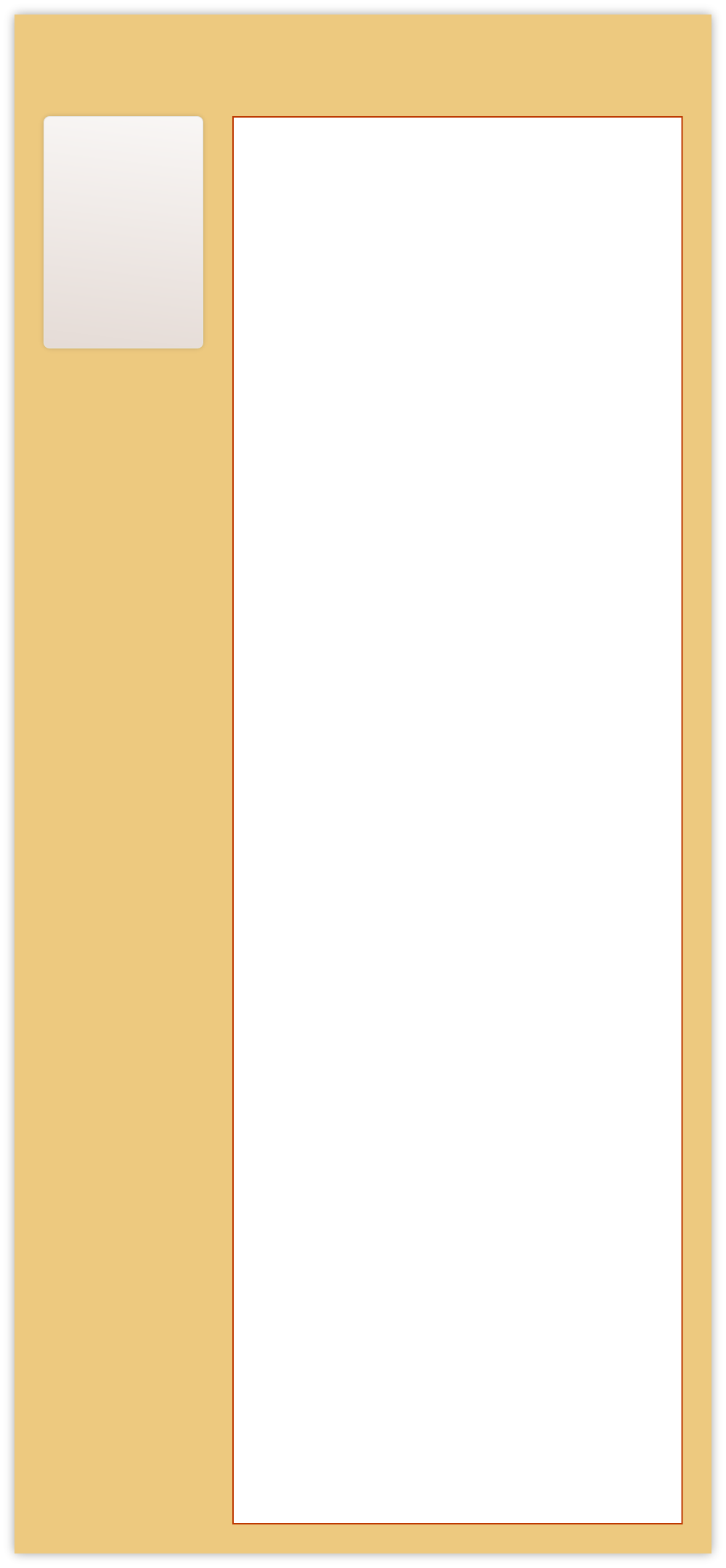

For more information: Recommended Links | Frequently Asked Questions
Copyright © 2018 by Michael Ray Brown. All rights reserved.
“First rate analysis at a cut-rate price.”
— Creative Screenwriting



In this second annual Special Agency/Consultant issue, Hollywood Scriptwriter magazine talks with agents, managers, and script consultants to find out how you can break into the industry with a marketable script. Story Sense founder Michael Ray Brown leads the pack, describing what makes his service unique.
This excerpt from the August of 2005 issue is reprinted here with the permission of Angela M. Cranon, Editor-in-Chief, Hollywood Scriptwriter magazine.



Why would a writer need a consultant?
Perhaps the simplest answer is that a consultant gives a writer perspective on their work. But why go to the expense of hiring a consultant when you can get feedback from a friend or your spouse, and it won’t cost you a dime? Well, unless your friend has read thousands of screenplays, and has years of practice articulating why these scripts work or don’t work, he or she probably can only offer you some general impressions. These aren’t much good when it comes to rewriting.
It’s not enough just to arm a writer with a list of suggestions. A writer needs to feel confident that these suggestions will make his script better. And not just more commercial, but better at achieving the writer’s intentions. It’s only then that the writer can give the rewrite the emotional commitment it needs. Otherwise, it’s just hackwork. Now, there are lots of well-paid hacks working in Hollywood, but that’s not the sort of writing you want for your speculative script. This is the script you’re writing out of passion, the calling card that will grab the industry’s attention and get you work.
A good consultant can enlighten you. A good consultant can inspire you. A good consultant can help you take your script to the next level.
What should come first, the script or the consultant?
The story comes first. Don’t try to mine a consultant for ideas. Don’t pitch them your ideas, soliciting their opinions on which one you should write. Ideas are a dime a dozen. It’s not the idea, but how it’s executed that distinguishes good screenwriting. Follow your muse, and write from the heart. Then, when you’ve done as much as you can do, ask a consultant for advice on how to make it better.
That’s not to say it has to be a full screenplay, or even a fully fleshed treatment. Clients often come to me with only an outline in hand. After all, that’s where most of the heavy lifting is done: in working out the structure. Writers will save themselves considerable time if they iron out the story’s kinks before sitting down to type, “FADE IN:” And that is where a consultant can be helpful.
The most important thing, though, isn’t the script or the consultant. It’s the writer’s passion. That’s what will sustain him through the process of rewriting. However, a consultant can make that process shorter and less arduous.
How has consultant advice changed over the past five years?
My notes tend to be longer and more detailed than they were five years ago. I’ve added a section covering format errors, and another with page notes. I also devote much more time to marking up the script than I used to. All this I do in an effort to make my advice as specific as possible.
What has dictated that change?
Necessity. Writers seem to be taking less responsibility for their work now. They tend to read less, prepare less, research less, and proofread less. In short, they seem careless. So there’s much more for an analyst to criticize. For example, I’m now forced to school writers on grammar, spelling, punctuation, and other basics. I’ve detected less of a desire among writers to carve out a career than to make a quick buck. This results in work that’s far from professional. Many writers seem less interested in telling a good story than in crafting a thrill ride. This results in work that’s devoid of passion, with no coherent theme driving it. All this makes my job harder. Before I can begin to offer any solutions, I have to figure out what the writer is trying to say. Even if the writer doesn’t know, and doesn’t care.
How does a consultant know when a script is non-marketable?
Anyone who claims he can predict the market is fooling himself. Nobody really knows what will sell. Even the most bizarre, esoteric and seemingly farfetched tale may find an audience. Whether that audience is big enough to justify the film’s production cost is, however, another matter. A consultant may comment on whether a script presents an accessible story in a manner that won’t bankrupt the producers. To judge whether a script is marketable, though, would be doing the writer a disservice and presuming to know something he does not.
This being said, there are red flags that can stop a reader cold. The most obvious of these is incorrect formatting. A truly conscientious reader will overlook such superficial matters and focus on content. However, if a script looks unprofessional, it may not be taken seriously. In terms of characterization, a reliance on stereotypes and a weak, unsympathetic lead with a poorly defined goal may knock a script out of the running. A disjointed structure with pointless scenes, lacking in conflict and jeopardy will also reduce the script’s chances of ever seeing the light of the big screen.
Can a non-marketable script be revamped to become marketable?
At the studios, when a mediocre script crossed my desk one of the most difficult questions I faced was whether it was worth developing. Was the premise strong enough? Did the writer have the talent and inclination to fix it, or had he taken it as far as he could? Would we need to bring in another writer, and risk additional expense, before the studio could decide whether to give it a green light?
Even a poorly executed script often has the germ of a worthwhile premise somewhere in it. The task of the consultant is to recognize this premise, if it’s not already apparent, and guide the screenwriter in developing it, even if it means throwing out ninety percent of what’s been written. What this takes for the screenwriter is the ability to submerge one’s ego for the sake of the material.
How would a screenwriter know if a consultant is well-trained?
Regrettably, no program currently exists for training consultants. There is no licensing board. All you must do to be a consultant is declare yourself one. Hang out your shingle, and you’re open for business. This, of course, has caused consultants to proliferate like mushrooms after a spring rain.
With so many self-proclaimed consultants out there, how can you tell whether a particular consultant is qualified? In other industries, someone usually becomes a consultant only after racking up extensive experience in the field. You should hold a script consultant to the same standards. When interviewing one, ask what sort of experience they have in the industry. Any consultant worth his salt will have a résumé listing positions in script acquisition and development with many well-recognized production companies and/or the major studios.
Every few years Creative Screenwriting magazine reviews about two-dozen top script consultants. They first did this in their March/April issue of 2003. You may be able to order a back issue, or find one at your local library. Also ask a consultant for their credits. While you don’t have to be a chicken to know a bad egg, it helps for a consultant to have written a few scripts. It’s important that he or she understands the process, and can deliver notes that are practical, notes that give you a clear road map for the rewrite.
Ultimately nothing is more reliable than word of mouth. If the consultant has a Web site, check out the testimonials. Ask other screenwriters for their recommendations. No matter how much experience a consultant has, the bottom line is their ability to understand the dynamics of your story, and to provide creative solutions to help you realize your script’s potential.
What makes your advice and company unique?
It comes down to experience and attitude. To my knowledge, few consultants have the range and breadth of experience that I do. I’ve been analyzing scripts professionally since 1976. I’ve served as a story analyst for seven major studios. I’ve also run the story department of a high-profile production company. And I’m a working screenwriter, with more than 35 hours of credits to my name.
Some consultants merely plug a client’s script into a pre-defined form. They analyze it category-by-category, describing how it measures up to the paradigm, in terms of characterization, dialogue, structure, production values, etc. From their canned responses you can tell they haven’t given it much thought.
My way of working is less rigid. I eschew the category approach, preferring to discuss whatever aspect of the script needs the most work. I see myself as a collaborator. In my notes, I present my clients with a series of bullet-point suggestions. We then talk over these ideas verbally. And out of such brainstorming comes some amazing developments. That’s what I enjoy the most.
Do you have any advice on working with a consultant?
My most frustrating experiences occur when the writer reacts defensively. When he devotes most of our discussion to explaining and defending his script, you know he’s not listening, and will remain close-minded to any suggestions. In such instances I wonder why the writer sought out my advice in the first place. It would, after all, be pointless to pay a consultant just to validate one’s own work. But if the writer remains humble and open to the possibilities, then working with a consultant can be an exhilarating experience, full of wonderful discoveries.
Script Consultants Issue #2
Michael Ray Brown, Story Sense
| Development Notes |
| Oral Consultation |
| Studio-style Coverage |
| Selling Synopsis |
| Proofreading |
| Sample Script Analysis |
| Sample Coverage |
| Sample Selling Synopsis |
| SolPix Interview |
| Creative Screenwriting Interview |
| Scriptwriter Interview #1 |
| Scriptwriter Interview #2 |
| Scriptwriter Interview #3 |
| Scriptwriter Interview #4 |
| Elements of a Great Script |
| Margin Settings |
| Scene Headings |
| Slug Lines |
| Description |
| Character Cues |
| Dialogue |
| Personal Direction |
| Transitions |
| Flashbacks |
| Montages |
| Telephone Calls |
| Registration |
| Software |